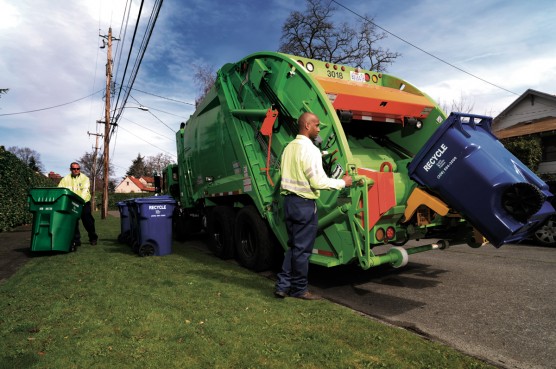Introduction
Norway Waste Management Market, driven by strict environmental regulations, advanced recycling systems, and a strong commitment to the circular economy. With ambitious national targets, Norway aims to reduce landfill dependency, improve recycling rates, and enhance waste-to-energy (WTE) capabilities.
A key player in this transformation is Løvås Transport Company AS, a leading Norwegian logistics and waste transport company specializing in efficient waste collection, recycling logistics, and sustainable waste transportation. As Norway embraces smart waste management solutions, Løvås Transport Company AS is at the forefront, integrating technology, sustainability practices, and innovative transport systems.
Løvås Transport Company AS: A Leader in Waste Logistics
1. Company Overview
Founded with a mission to improve waste collection and logistics efficiency, Løvås Transport Company AS provides:
- Municipal and industrial waste transport
- Recycling logistics and reverse supply chain solutions
- Hazardous waste handling and secure disposal
- Eco-friendly waste transportation services
The company partners with municipalities, private businesses, and recycling facilities to ensure waste is efficiently collected, sorted, and delivered to the appropriate recycling or disposal centers.
2. Key Strategies for Sustainable Waste Management
Løvås Transport Company AS has developed a multi-pronged strategy to align with Norway’s sustainability goals:
A. Smart Waste Logistics and Digital Tracking
- GPS & RFID waste tracking: Monitors waste movement in real time, ensuring compliance and transparency.
- AI-powered route optimization: Reduces fuel consumption and CO₂ emissions by optimizing collection routes.
- Automated waste collection scheduling: Uses data analytics to predict waste generation trends and improve efficiency.
B. Integration with Norway’s Circular Economy Initiatives
- Reverse logistics for recyclables: Supports the transportation of waste materials to recycling and processing centers.
- Collaboration with recycling facilities: Ensures high material recovery rates and minimal landfill usage.
- Eco-friendly packaging transport: Works with companies to improve waste reduction in packaging logistics.
C. Commitment to Low-Carbon and Green Transport
- Fleet electrification: Transitioning to electric and biofuel-powered trucks to cut carbon emissions.
- Carbon footprint reduction initiatives: Investing in energy-efficient transport and hybrid vehicles.
- Sustainable urban waste collection: Partnering with cities for low-emission waste transport systems.
D. Compliance with Norway’s Regulatory Framework
Norway enforces strict waste management laws to promote sustainability. Løvås Transport Company AS ensures full compliance with:
- EU Landfill Directive – Reducing landfill dependency and increasing material recovery.
- Norwegian Waste Regulation (Avfallsforskriften) – Encouraging waste sorting, recycling, and sustainable disposal.
- Carbon tax policies – Reducing emissions by adopting low-carbon transport solutions.
Norway’s Waste Management Market: Innovations and Trends
Norway’s waste management sector is evolving with cutting-edge technologies, government initiatives, and circular economy strategies.
1. Waste-to-Energy (WTE) Innovations
Norway is a pioneer in Waste-to-Energy (WTE) plants, converting non-recyclable waste into electricity and district heating.
- Oslo’s Klemetsrud WTE Plant: Processes 310,000 tons of waste annually, providing heat to 60,000 households.
- Carbon Capture at WTE Plants: Norway is developing CO₂ capture technology to reduce emissions from incineration facilities.
2. AI and Robotics in Recycling
- AI-powered waste sorting systems: Automates material separation, improving recycling efficiency.
- Robotic waste pickers: Use machine learning to identify and sort recyclables with high precision.
3. Blockchain for Waste Traceability
- Digital waste tracking: Ensures transparent waste movement from collection to recycling.
- Smart contracts for waste management: Enables automated transactions in recyclable material trading.
4. Expansion of Deposit Return Schemes (DRS)
Norway’s reverse vending machine system collects over 97% of plastic bottles and aluminum cans, setting a global standard.
5. Public-Private Collaborations for Circular Economy
Norway’s government is funding startups and private enterprises to develop innovative waste reduction solutions.
Future of Waste Management in Norway: What’s Next?
1. Electrification of Waste Transport Fleets
Companies like Løvås Transport Company AS are accelerating the transition to electric and hydrogen-powered waste trucks to achieve Norway’s carbon neutrality goals.
2. AI-Powered Waste Collection Systems
AI and IoT sensors will be used to optimize waste collection schedules, predict trends, and improve efficiency.
3. Advanced Waste Valorization Technologies
Norway is investing in biogas and chemical recycling to convert organic and plastic waste into reusable resources.
4. Smart Cities and Integrated Waste Management Systems
Norway is developing smart waste bins, automated collection networks, and real-time waste monitoring platforms to reduce inefficiencies and improve urban waste management.
Conclusion
Norway's waste management industry continues to lead globally through its commitment to sustainability, innovation, and circular economy principles. At the forefront of this transformation is Løvås Transport Company AS, which plays a crucial role in ensuring efficient, eco-friendly waste logistics and transport.
By integrating digital tracking, AI-driven route optimization, low-emission vehicles, and reverse logistics systems, Løvås Transport Company AS exemplifies how logistics companies can align with national sustainability goals. Combined with Norway's advancements in waste-to-energy, recycling automation, and smart waste infrastructure, the sector is evolving into a model for modern, responsible waste management.





Comments